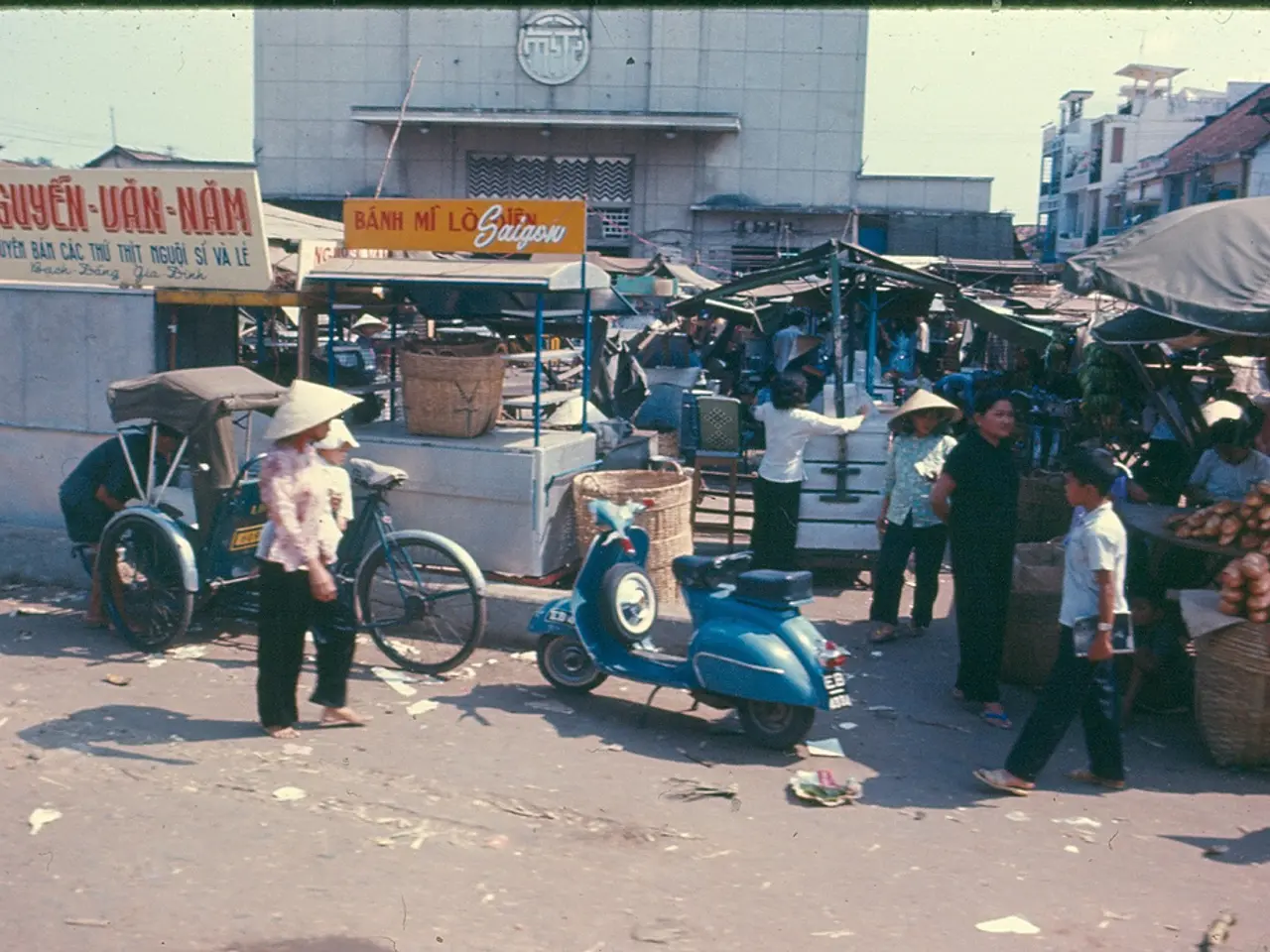Rapidly increasing demand and limited available land make Cape Town and Durban attractive investment locations
In the bustling cities of Cape Town and Durban, the industrial and logistics sectors are experiencing a surge, driven by land scarcity, strong demand, climate resilience, and supply chain shifts. These South African metros are leading the country's industrial property boom, with rising rental rates and historically low vacancies [1].
The key drivers shaping these markets are varied and far-reaching. E-commerce growth is a significant factor, elevating demand for premium, tech-enabled warehouses and last-mile distribution facilities, particularly in Cape Town where a tech-savvy tenant base fuels this demand [2][3]. Climate risk considerations are also playing a crucial role, pushing investors and occupiers towards future-proof, resilient buildings that can withstand environmental challenges [2].
Localization and operational alignment are another key influencer. Businesses and investors are focusing on strategic location choices and aligning asset selection with long-term operational needs to ensure sustainability and mitigate risks related to supply chain disruptions [2]. Infrastructure improvements and logistics network revitalization are also significant factors, with significant investments in Transnet’s port and rail infrastructure around Durban and Cape Town [1].
The ports of Cape Town and Durban are critical hubs for freight handling and regional trade, and enhanced security and increased container handling volumes at these ports signal more reliable logistics support, attracting investment confidence [1]. Regional trade shifts and integration under AfCFTA are further boosting demand for efficient industrial and logistics facilities [4].
In Cape Town, industrial growth hotspots include Bracken Gate, Richmond Park, and revitalized nodes such as Epping and Parow, emphasizing both expansion and refurbishment as they accommodate rising demand and land scarcity [2]. Durban benefits from similar dynamics, bolstered by improved freight infrastructure and logistics capacity upgrades.
The landscape is marked by a shift towards sustainable, digitally integrated, and climate-resilient industrial and logistics assets. Increased private sector and financial institution capital is ready to deploy, contingent on robust and bankable infrastructure concession agreements, particularly related to Transnet’s upcoming procurement rounds [1][2][3].
Assets that embed mitigation strategies early attract stronger investor interest and pricing premiums in Cape Town and Durban. South Africa's logistics and industrial sector, particularly in Cape Town and Durban, is offering unique value propositions for investors and occupiers as supply chain strategies globally shift towards nearshoring, flexibility, and resilience [5].
In Durban, the landlord-favoured market is due to chronic land shortages and rising operational costs. Proximity to port infrastructure offers a decisive cost advantage in Durban. On the other hand, strong governance and functioning infrastructure position Cape Town as a low-risk node compared to Gauteng [6].
Triple net rentals for A-grade distribution centres in Durban currently range between R105/m² and R110/m², with further rental escalation likely if supply remains constrained. Tenants, especially multinationals, are factoring in resilience, water security, and energy independence when selecting sites in the Western Cape corridors and select Durban nodes [7].
In conclusion, e-commerce expansion, climate risk mitigation, localization strategies, and infrastructure investments are central to shaping the industrial and logistics investment environment in Cape Town and Durban in 2025. These cities are two of Africa's most investable logistics and industrial markets, offering unique opportunities for investors and occupiers alike.
- The surge in the industrial and logistics sectors in Cape Town and Durban is being driven not only by land scarcity and strong demand but also by e-commerce growth, which fuels the need for tech-enabled warehouses and distribution facilities.
- Climate risk considerations are pushing investors and occupiers in these markets towards future-proof, resilient buildings that can withstand environmental challenges, as part of the shift towards sustainable industrial and logistics assets.
- Localization and operational alignment are key influencers, with businesses and investors focusing on strategic location choices and asset selection that aligns with long-term operational needs, promoting sustainability and mitigating risks.
- Infrastructure improvements and logistics network revitalization, particularly in Transnet’s port and rail infrastructure around Durban and Cape Town, are significant factors that are attracting investment confidence and boosting demand for efficient industrial and logistics facilities.








